THE SACREDNESS OF THE PERSON
THE SACREDNESS OF THE PERSON
A New Genealogy of Human Rights
Hans Joas
Alex Skinner, Translator

2013 Georgetown University Press. All rights reserved. No part of this book may be reproduced or utilized in any form or by any means, electronic or mechanical, including photocopying and recording, or by any information storage and retrieval system, without permission in writing from the publisher.
Library of Congress Cataloging-in-Publication Data
Joas, Hans.
The sacredness of the person : a new genealogy of human rights / Hans Joas.
pages cm
Includes bibliographical references and index.
ISBN 978-1-58901-969-0 (pbk. : alk. paper)
1. Human rightsHistory. 2. Human rightsReligious aspects. I. Title.
JC571.J563 2013
323.09dc23
2012037547
 This book is printed on acid-free paper meeting the requirements of the American National Standard for Permanence in Paper for Printed Library Materials.
This book is printed on acid-free paper meeting the requirements of the American National Standard for Permanence in Paper for Printed Library Materials.
15 14 13 9 8 7 6 5 4 3 2
First printing
Printed in the United States of America
To
Bettina Hollstein
Matthias Jung
Wolfgang Knbl
CONTENTS
Chapter 1
THE CHARISMA OF REASON
The Genesis of Human Rights
Chapter 2
PUNISHMENT AND RESPECT
The Sacralization of the Person and the Forces Threatening It
Chapter 3
VIOLENCE AND HUMAN DIGNITY
How Experiences Become Rights
Chapter 4
NEITHER KANT NOR NIETZSCHE
What Is Affirmative Genealogy?
Chapter 5
SOUL AND GIFT
The Human Being as Image and Child of God
Chapter 6
VALUE GENERALIZATION
The Universal Declaration of Human Rights and the Plurality of Cultures
PREFACE
Readers may understand this book better if they know something about its lengthy genesis. The basic idea was directly inspired by the two books I wrote in the second half of the 1990s (The Genesis of Values and War and Modernity). I wished to test out the theory presented in the first of these books, which centers on the genesis of value commitments of all kinds, by examining a specific value system. I wanted this to be a value system that has been influenced by and has itself exerted an influence on the history of violence, to which the second book was dedicated. The history of human rights seemed an ideal choice for such a project.
But as I set about implementing this plan I found myself confronted with a problem that caused me far greater trouble than I had expected. Familiarizing myself with the extensive historical literature and getting to grips with a wide range of philosophical and theological contributions to the justification of human rights proved not just unavoidable but extremely time-consuming. This came as no great surprise. But it became increasingly unclear how, in a positive sense, I should conceive of my own contributionwhich I envisaged neither as history, philosophy, nor theology. The individual chapters of the present book certainly draw extensively on major sociologists and their theories: historical sociology of Christianity. I was, however, increasingly concerned that these studies were becoming unmanageable and impossible to integrate into a whole.
A number of invitations to present my ideas and discuss them with others proved extremely useful to the progress, and ultimately to the successful conclusion, of this program of study. I am truly grateful for all these opportunities, but can mention only the most important here.
At an early stage I was aided by an invitation from Susanna Schmidt, then director of the Catholic Academy in Berlin, to give the Guardini Lectures at Humboldt University of Berlin in 2002; this allowed me to impose an initial order on my ideas. I am greatly indebted to her and the discussants of the four lectures (Wolfgang Huber, Herfried Mnkler, Michael Bongardt, and Wilhelm Schmidt-Biggemann). An invitation from the Forschungsinstitut fr Philosophie Hannover in February 2009 to teach a so-called master class in philosophy on the topic of this book played an important role. I would especially like to thank its then director, Gerhard Kruip, and the young scholars who attended this course for this opportunity to sharpen up my arguments. Important to the books final form was an invitation from the Berkley Center for Religion, Peace, and World Affairs at Georgetown University, Washington, DC, to hold a series of public lectures on the topic in autumn 2009. This allowed me to streamline a project that risked becoming hopelessly unwieldy. Thanks are due here to the directors of the center, Thomas Banchoff and Jos Casanova. In certain chapters of the book I draw on some of the ideas already set out in published essays; this is indicated throughout.
Over the last few years I have had the privilege of being invited to take up fellowships at the Swedish Collegium for Advanced Study, Uppsala, the Berlin Wissenschaftskolleg (Institute for Advanced Study), and the Stellenbosch Institute for Advanced Study (South Africa). As well as working on other book projects, I used these fellowships to advance the present work. I am deeply grateful to the directors of these institutions and the other fellows for the excellent working atmosphere.
Bettina Hollstein, Wolfgang Knbl, and Christian Polke read the entire manuscript and made helpful comments. Its wonderful to have such friends and colleagues. I dedicate this book to three of them with whom I enjoyed a particularly productive association during my years as director of the Max Weber Center for Advanced Cultural and Social Studies at the University of Erfurt. I am grateful also to all my other colleagues at the Max Weber Center for our time together there. Eva Gilmer at Suhrkamp Verlag has supervised the production of the original German version of this book (Frankfurt am Main: Suhrkamp Verlag, 2011) with great care and attention; my thanks to her too. I would like to thank Ella Mller and Jonas Lindner, who carefully proofread the manuscript and compiled the index following my move to the Freiburg Institute for Advanced Studies (FRIAS). And finally many thanks again to Alex Skinner, my translator, for all his efforts.
INTRODUCTION
This book deals with the history of human rights and the problem of their justification. But it provides neither a comprehensive intellectual or legal history nor a new philosophical justification for the idea of universal human dignity and the human rights based upon it. Anyone harboring such expectations will be disappointed. This is not for essentially trivial reasons, such as the fact thatdespite all the impressive preparatory work that has been donefurther in-depth research is needed for any comprehensive history of human rights. Nor is it because any of the existing philosophical justifications, those put forward by Kant, Rawls, or Habermas, for example, have rendered any new effort of this kind superfluous. The approach I am taking here is characterized by a specific way of linking justificatory arguments and history, a linkage not found in this form in histories of human rights or in philosophical treatises, a linkage moreover that these approaches do not usually seek to achieve. The ambitious philosophical attempts to justify human rights make do without history. They construct their arguments in light of the (alleged) character of practical reason and of moral oughts, the preconditions found in thought experiments on the establishment of political order, or the characteristics of an idealized discourse. A strangely tense relationship inevitably exists between such constructions and history. From this perspective it must appear strange that the timelessly valid has so rarely been recognized as such in the history of humankind. Here, the history of ideas merely presents the steps on the way to the real discovery. It becomes a prehistory consisting of tentative and imperfect efforts. Empirical history, meanwhile, becomes the mere process of moving closer toward or farther away from an ideal, unless a model of progress enables us to think in terms of gradually moving closer to this ideal in the past and continuing to realize it in the future.
Next page

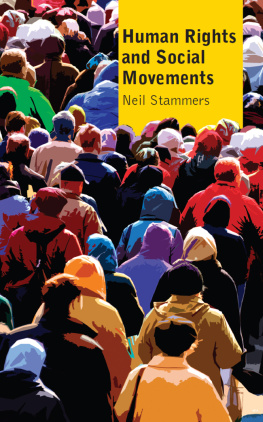
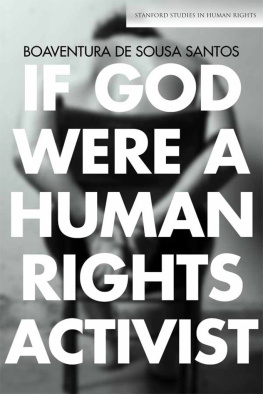
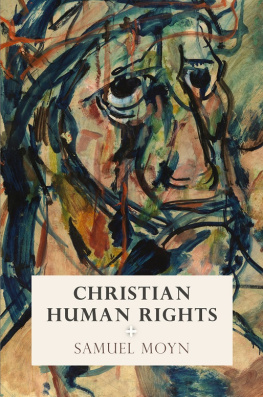
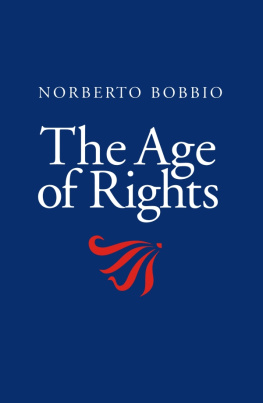
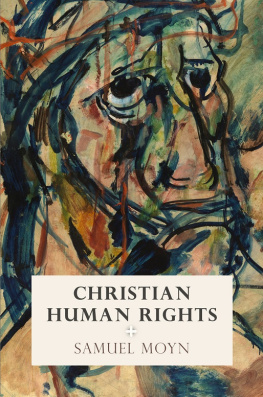

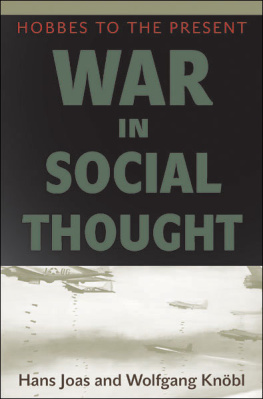

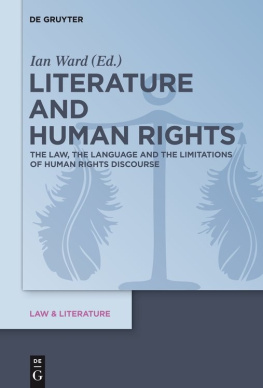

 This book is printed on acid-free paper meeting the requirements of the American National Standard for Permanence in Paper for Printed Library Materials.
This book is printed on acid-free paper meeting the requirements of the American National Standard for Permanence in Paper for Printed Library Materials.